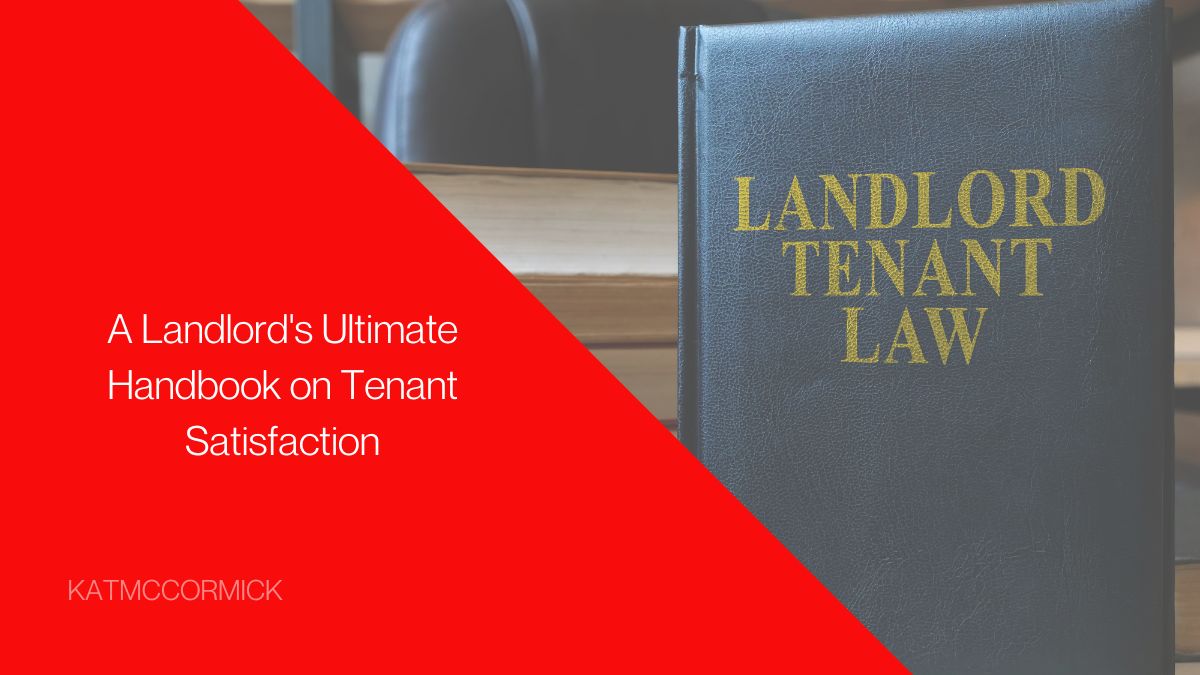Successful management of rental properties requires a positive landlord-tenant relationship at all times. In this thorough manual, we’ll provide you the tools you need to deal with tenant complaints and maintenance requests in a way that leaves everyone happy.
How to Handle Tenant Complaints and Maintenance Requests
When dealing with tenant complaints and maintenance requests, following these expert recommendations will help ensure a seamless procedure that keeps tenants satisfied and your property in good condition.
1. Active Listening is Key
The first step in resolving a tenant complaint or repair request is to carefully hear the tenant out. Assure them of your attention and comprehension. This small action can go a long way toward establishing credibility and easing friction in conflict resolution.
2. Prompt and Professional Communication
Address tenant concerns and maintenance requests promptly. Always be respectful and kind in your written, verbal, and in-person interactions. Misunderstandings can be avoided and a good atmosphere can be maintained through open lines of communication.
3. Assess the Urgency
It’s important to remember that not all concerns and demands are created equal. Sort them into categories according to how they might affect the tenant’s well-being.
4. Regular Property Inspections
Perform routine inspections of the property to stave off any emergency calls for repairs. To keep the property in good shape, it’s important to anticipate and deal with any problems that may arise.
5. Provide Clear Maintenance Guidelines
Tenant handbooks and leasing agreements should provide maintenance guidelines. This clarifies the responsibilities of both the renter and the landlord in regards to maintenance.
6. Offer Multiple Communication Channels
Tenants should be given a number of options for getting in touch, including email, phone, and a secure web portal.
7. Document Everything
Document everything you can think to document, from complaints to requests for repairs. It’s important to keep records in case of disagreements or to monitor recurring problems.
8. Prioritize Health and Safety
Priority should always be given to fixing health and safety issues including water leaks and electrical malfunctions. Quickly addressing these issues will safeguard the safety of your renters.
9. Transparent Maintenance Schedule
Keep everyone in the loop by notifying tenants of any upcoming maintenance or repair work. Tenants can avoid unwelcome shocks and better prepare for their stay.
10. Hire Reliable Contractors
Establish a group of trustworthy contractors and service providers with a track record of quick responses to maintenance requests. Having reliable experts readily available can help speed up the problem-solving procedure.
FAQs about Handling Tenant Complaints and Maintenance Requests
How quickly should I respond to a maintenance request?
Try to get back to anyone who have asked for repairs within a day or two. Your commitment to finding solutions is highlighted by your prompt responses.
What if a tenant is causing the maintenance problem?
If the tenant’s carelessness led to a maintenance problem, it’s important to have a calm conversation about the situation and remind them of their obligations under the lease.
Are landlords responsible for all repairs?
Normal wear and tear usually falls under the purview of the landlord to fix.
Final Words
Landlords need the ability to efficiently handle tenant requests for repairs and other issues. If you stick to these tried-and-true practices, you may be able to efficiently manage your property, create a pleasant atmosphere for your tenants, and find solutions to issues swiftly. Keep in mind that the keys to a smooth experience in managing rental properties are open lines of communication, honesty, and initiative.
- Key Strategies to Mitigating risks in Rental Property Investments
- The Essential Role of Property Management Companies
- The Ultimate Guide to Handling Evictions and Tenant Conflicts
- The Hidden Impact of Taxes and Insurance Costs
- Protect Your Property: Essential Practices for Effective Tenant Screening

